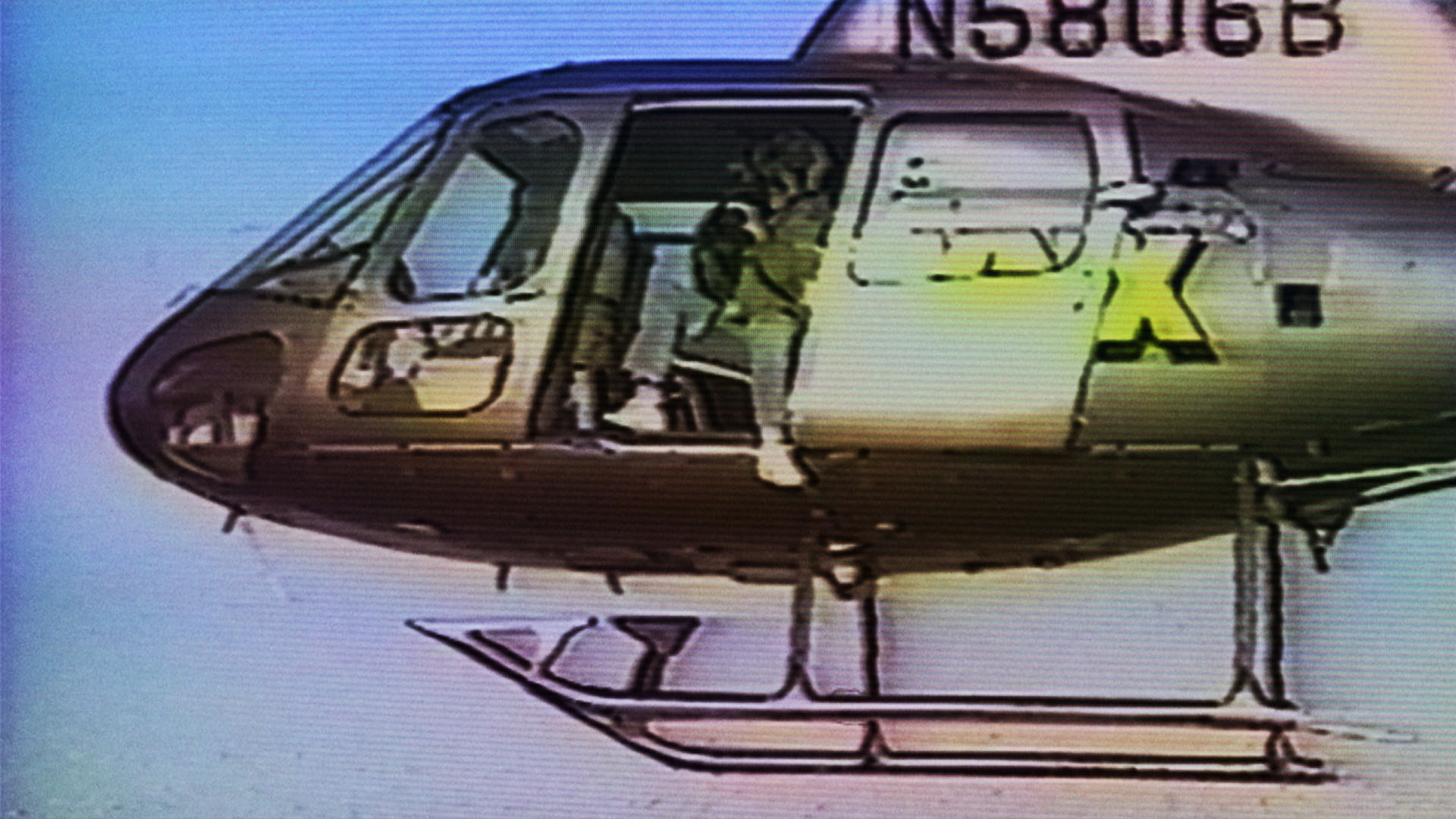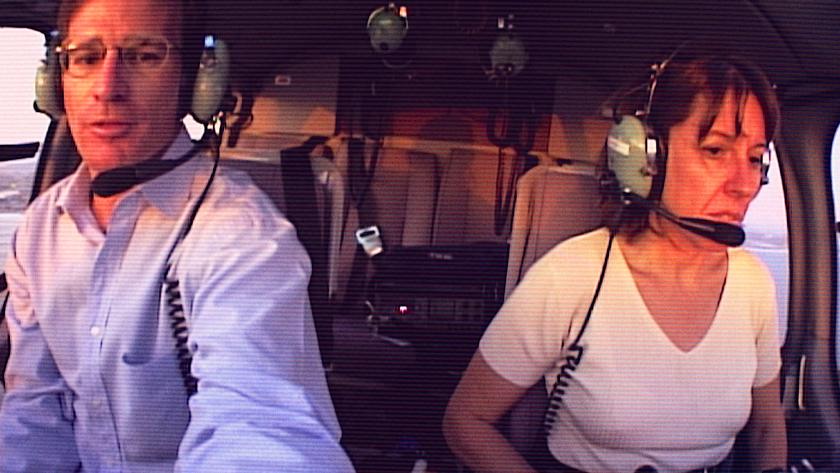A story of obsession, media madness and the price of fame, as well as a filmic incarnation of Jim Morrison’s “bloody red sun of fantastic LA”, Matt Yoka’s film Whirlybird is a strange and fascinating hybrid. Subtly textured by Ty Segall’s quizzical and unsettling background music, it tells the story of Bob Tur and his wife Marika, who (at Bob’s urging) created their own breaking news team, the Los Angeles News Service, dashing around greater LA in search of the latest headline story. As Marika recalled, when they were dating they never went to dinner or the movies, but would instead end up covering a car crash or a drive-by shooting. On their first date, Bob took her to get pictures of the handiwork of the Skid Row Slasher.
As she looks back on their years together, Marika reflects on how “my life was told in other people’s stories.” She’s particularly aware of this now, now doubt, as she and Bob have separated and she curates their compendious library of news footage, not to mention their hoard of home movies shot in broadcast quality. Bob, meanwhile, has now had gender reassignment surgery, transitioned into Zoey Tur and moved to a tranquil country retreat in Northern California. She feels continuing anguish about “the despicable things that I’ve done.”
That’s because, as Bob, Tur was driven and utterly ruthless in his determination to get to the hottest stories first. Initially driving to newsworthy scenes by car, with Bob handling the camera and Marika doing sound, they would invariably find themselves trying to rush to the latest catastrophe or outrage only to be thwarted by heavy traffic on the LA freeway network. Bob’s hair-trigger feistiness led to violent conflicts with cops trying to stop him filming, including one fantastic moment when an exasperated officer gave him a hefty sock on the jaw (Bob: “did you get that on camera?”).
His big brainwave was to acquire a helicopter and soar above the motorway madness, goading Marika – now the camera operator – to lean out of the helicopter as far as possible to get the best footage. Considering she had to conquer her initial fear of heights, she did a spectacular job (pictured below). It seems their relationship was fuelled more by the adrenalin burn of chasing the latest and luridest stories, and beating all the other LA news-hounds to the punch, than by conventional notions of love or romance. Marika described how she was swept along in Bob’s slipstream of do-or-die determination – “I picture him as a blur” – and the fact that they were creating a new style of on-the-fly journalism was thrilling.
It seems their relationship was fuelled more by the adrenalin burn of chasing the latest and luridest stories, and beating all the other LA news-hounds to the punch, than by conventional notions of love or romance. Marika described how she was swept along in Bob’s slipstream of do-or-die determination – “I picture him as a blur” – and the fact that they were creating a new style of on-the-fly journalism was thrilling.
The helicopter changed everything. It allowed them to get to stories sometimes before the emergency services, enabling them to catch the breaking wave of the action in often blood-soaked detail. At first they still had to record their footage on tape and deliver it to news outlets, but when their burgeoning success brought them a lucrative deal with KCOP’s News 13 channel, it also gave them a microwave transmitter allowing footage to be fed instantly from the chopper.
Their TV triumphs were countless and included some of the biggest news stories of the last 30 years, not least the 1991 LA riots and the unforgettable police car chase of murder suspect OJ Simpson’s white Ford Bronco. Remembering the latter still galvanises Zoey Tur’s adrenalin glands – “Fuck yes! I went to war and I survived!” Eighty million viewers watched their footage.
But what made Bob a brilliant news-grabber made him a nightmare to work with, constantly abusing and yelling at Marika and never satisfied with even the strongest stores. His euphoria at scoring a big story and getting it on air was fleeting, followed within a few hours by a crushing emotional comedown. His childhood as a punchbag for his angry, abusive father doubtless played its part, and his unacknowledged gender confusion stoked the fire. “Bob had a lot of devil because Bob had a lot of pain,” Zoey reflected sorrowfully.
Marika, at least, seems at peace with herself, able to view her years with Bob with an affectionate but by no means uncritical eye. The ex-couple must surely take pride in the success of their children Katy (now a news anchor at MSNBC) and Jamie, a psychiatrist who speaks insightfully about his parents and his relationship with them. It’s a gripping story, and Matt Yoka tells it with panache.















Add comment